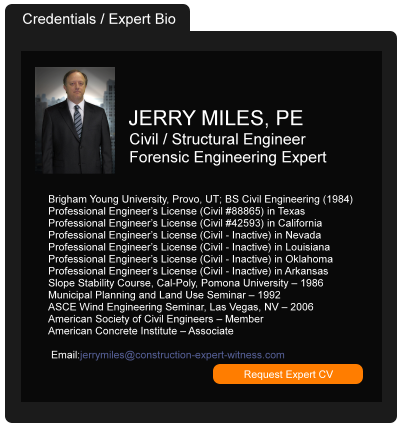Connecticut Builders Right To Repair Current Law Summary:
Current Law Summary: Case law precedent
Building Expert Contractors Licensing
Guidelines Fairfield Connecticut
License required for electrical and plumbing trades. No state license for general contracting, however, must register with the State.
Association Directory
Local # 0780
433 Meadow St
Fairfield, CT 06824
http://www.buildfairfieldcounty.com
Fairfield Connecticut Building Expert 10/ 10
Builders Association of Eastern Connecticut
Local # 0740
20 Hartford Rd Suite 18
Salem, CT 06420
http://www.baec.net
Fairfield Connecticut Building Expert 10/ 10
Home Builders Association of New Haven Co
Local # 0720
2189 Silas Deane Highway
Rocky Hill, CT 06067
http://www.hbanewhaven.com
Fairfield Connecticut Building Expert 10/ 10
Home Builders Association of Hartford Cty Inc
Local # 0755
2189 Silas Deane Hwy
Rocky Hill, CT 06067
http://www.hbahartford.com
Fairfield Connecticut Building Expert 10/ 10
Home Builders Association of NW Connecticut
Local # 0710
110 Brook St
Torrington, CT 06790
http://www.hbanwct.org
Fairfield Connecticut Building Expert 10/ 10
Home Builders Association of Connecticut (State)
Local # 0700
3 Regency Dr Ste 204
Bloomfield, CT 06002
http://www.hbact.org
Fairfield Connecticut Building Expert 10/ 10
Building Expert News and Information
For Fairfield Connecticut
"Your Work" Exclusion Bars Coverage for Contractor's Faulty Workmanship
More In-Depth Details on the Davis-Bacon Act Overhaul
No Friday Night Lights at $60 Million Texas Stadium: Muni Credit
Safety, Technology Combine to Change the Construction Conversation
An Increase of US Metro Areas’ with Normal Housing & Economic Health
Traub Lieberman Partner Lisa M. Rolle Obtains Pre-Answer Motion to Dismiss in Favor of Defendant
Colorado Requires Builders to Accommodate High-Efficiency Devices in New Homes
Injury to Employees Endorsement Eliminates Coverage for Insured Employer
Delays and Suspension of the Work Under Fixed Price Government Contract
Demonstrating A Fraudulent Inducement Claim Or Defense
Allegations Versus “True Facts”: Which Govern the Duty to Defend? Bonus! A Georgia Court Clears Up What the Meaning of “Is” Is
Recent Amendments and Caselaw Affecting the Construction Industry in Texas
“If It Walks Like A Duck . . .” – Expert Testimony Not Always Required In Realtor Malpractice Cases Where Alleged Breach Of Duty Can Be Easily Understood By Lay Persons
Texas Supreme Court Defines ‘Plaintiff’ in 3rd-Party Claims Against Design Professionals
Construction Defect Lawsuit Came too Late in Minnesota
NTSB Outlines Pittsburgh Bridge Structure Specifics, Finding Collapse Cause Will Take Months
Contractors’ Right to Sue in Washington Requires Registration
After 60 Years, I-95 Is Complete
Blockbuster Breakwater: Alternative Construction Method Put to the Test in Tampa Bay
Forcible Entry and Detainer Actions: Courts May Not Consider Tenant’s Hardship
Transition Study a Condo Board’s First Defense against Construction Defects
Deference Given To Procuring Public Agency Regarding Material Deviation
Eleven Payne & Fears Attorneys Honored by Best Lawyers
It’s All a Matter of [Statutory] Construction: Supreme Court Narrowly Interprets the Good Faith Dispute Exception to Prompt Payment Requirements in United Riggers & Erectors, Inc. v. Coast Iron & Steel Co.
Pensacola Bridge Halted Due to Alleged Construction Defects
Super Lawyers Selects Haight’s Melvin Marcia for Its 2023 Northern California Rising Stars List
Home Prices in 20 U.S. Cities Increase at Slower Pace
The “Unavailability Exception” is Unavailable to Policyholders, According to New York Court of Appeals
No Coverage For Damage Caused by Chinese Drywall
The Cost of Overlooking Jury Fees
Chinese Brooklyn-to-Los Angeles Plans Surge: Real Estate
Florida Appeals Court Rules in Favor of Homeowners Unaware of Construction Defects and Lack of Permits
Judge Tells DOL to Cork its Pistol as New Overtime Rule is Blocked
July Sees Big Drop in Home Sales
Nevada Supreme Court to Decide Fate of Harmon Towers
Can an App Renovate a Neighborhood?
DHS Awards Contracts for Border Wall Prototypes
Terminating Contracts for Convenience — “Just Because”
New York Court Narrowly Interprets “Expected or Intended Injury” Exclusion in Win for Policyholder
Chicago Debt Document Says $8.5B O'Hare Revamp May Be Delayed
Is New York Heading for a Construction Defect Boom?
Weyerhaeuser Leaving Home Building Business
Violation of Prompt Payment Statutes is Not a Breach of Contract. But That’s Not the Most Interesting Part
New York Court Temporarily Enjoins UCC Foreclosure Sale
Anti-Concurrent Causation Clause Eliminates Loss from Hurricane
Unpunished Racist Taunts: A Pennsylvania Harassment Case With No True 'Winner'
Treble Damages Awarded After Insurer Denies Coverage for Collapse
Summary Judgment for Insurer Reversed Based on Expert Opinion
Ornate Las Vegas Palace Rented by Michael Jackson for Sale
Time to Reform Construction Defect Law in Nevada


































































